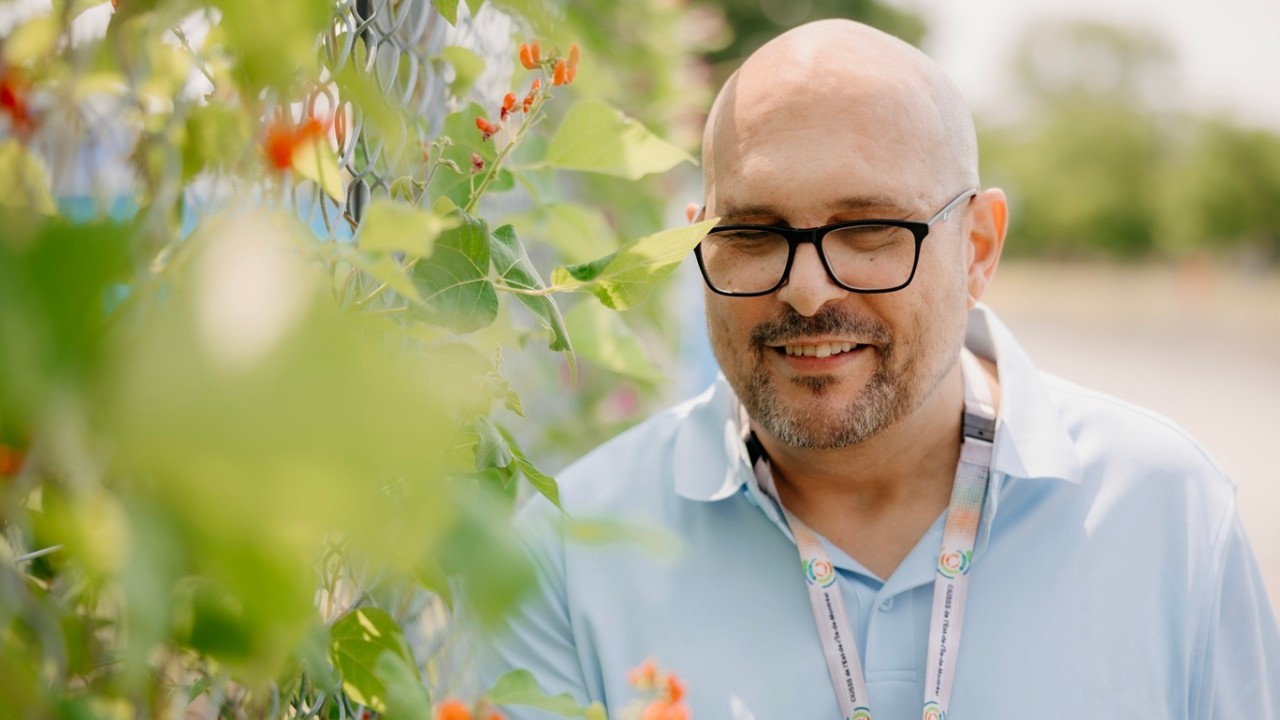
Chad Chouinard
Finding purpose in peer support and embracing sustainable recover
When Chad Chouinard was first diagnosed with schizoaffective disorder in 1994, his dad was his very first peer support partner. Having struggled with bipolar disorder and alcoholism himself, Chad’s father relayed the messages of hope and humanity that would later inspire his son’s purpose: helping others to find the light within themselves.
When Chad Chouinard was first diagnosed with schizoaffective disorder in 1994, his dad was his very first peer support partner. Having struggled with bipolar disorder and alcoholism himself, Chad’s father relayed the messages of hope and humanity that would later inspire his son’s purpose: helping others to find the light within themselves.
In his second term at university, Chad had difficulty concentrating. The anxiety that had begun in childhood fully reared its head when a family tragedy shook the young student to his core. Describing restless nights to his doctor, Chad just seemed like another youth facing burnout and left the office with a prescription for sleeping pills. He finally slept the full night but awoke the next morning to find that the people on TV were speaking directly to him. “My reality had shifted. My psychosis projected itself onto the screen, distorting the images to match what my brain was telling me.” Forcibly removed from home for his own safety, Chad’s hallucinations continued in the hospital, where he was diagnosed with schizoaffective disorder. “I don’t remember that first month. They started electroshock therapy to get me to eat. I had been refusing all the food because I believed they were trying to poison me or fatten me up. It was only after my third electroshock treatment that I came back to reality.”
Finding the light
For Chad, that new reality was a hopeless one. His turbulent twenties were filled with subsequent hospitalizations, addiction issues and alternating periods of depression and mania that required him to quit his studies. “I couldn’t really see the light at the end of the tunnel. I thought I’d never find work or lead a satisfying life.”
After getting sober in his early thirties, Chad persevered through another hospitalization with the help of a nurse who opened his eyes to his natural gifts. “That woman gave me hope,” he recalls with a smile. “She would ask about my goals and what I wanted to do with my life. We made a list of my strengths, and she introduced me to a peer support training program. When I began to consider a career in peer support, my illness finally had meaning.”
“Recovery isn’t a linear process. I like to think of it as a Waltz.”
Chad Chouinard
Building a community
In the years since that fateful intervention, Chad has dedicated his life to guiding others on their journey from diagnosis to hope. Today, he works as a peer support counsellor at the Quebec Schizophrenia Society in Montreal, sharing his story and building a community, with a team of peers and a director that make the job as fun as it is meaningful. “We often see strengths in others that we can’t see in ourselves. Our job is to reflect those strengths back to them, to help them find the gifts within so that they can overcome challenges, and to give them love.” He highlights that the most important factor in supporting someone living with psychosis is to help them look beyond their hallucinations. “If they tell you they see a green mouse, it’s about understanding how to help them through the fear of the green mouse rather than convincing them that green mice aren’t real.”
Peer support can bridge the gaps for those without an existing safety net outside hospital walls. If Chad’s perseverance got him through his struggles, the support of his entourage kept that perseverance alive through the twists and turns. “Recovery isn’t a linear process. I like to think of it as a waltz, with steps forwards and backwards. Every relapse is a lesson, and every lesson eventually leads to success. You just have to keep moving and dancing with life.”